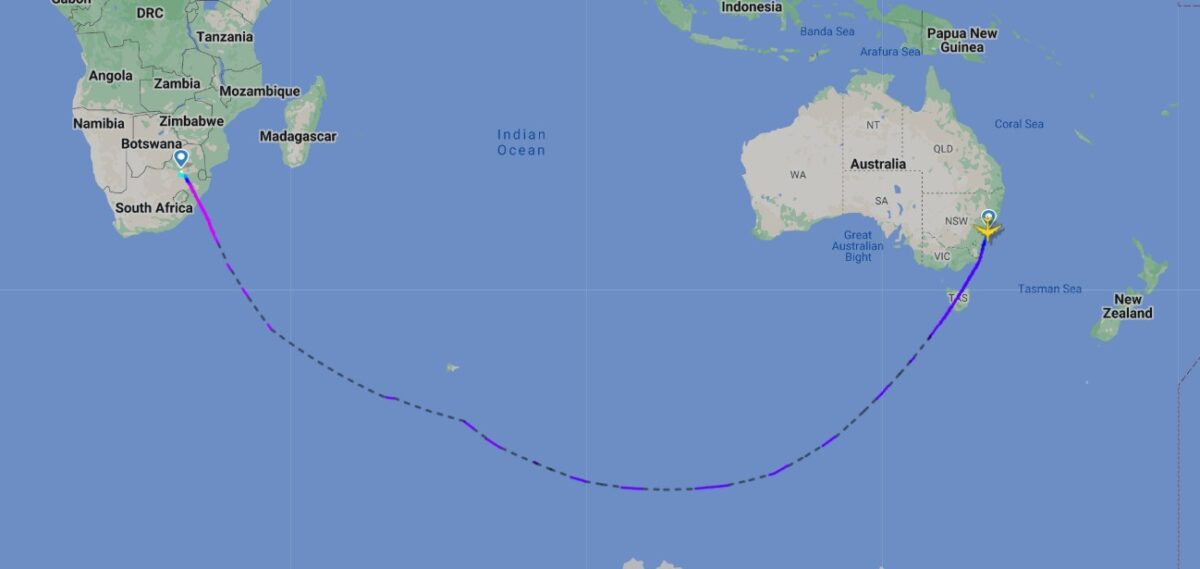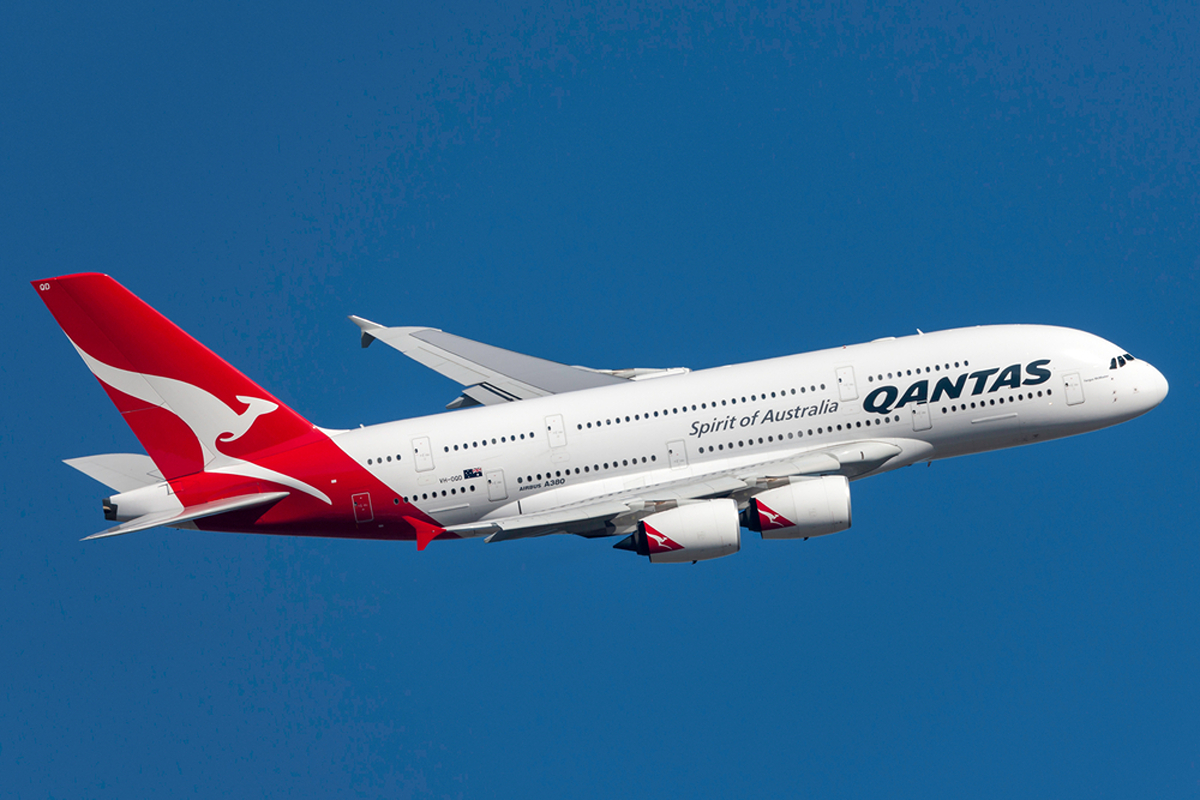Australian airline Qantas has said it is being repeatedly forced to delay its flights operating between Sydney and Johannesburg in South Africa with little notice due to warnings the airline receives about descending debris from Elon Musk’s SpaceX Falcon 9 rockets re-entering the Earth’s atmosphere. The delays of up to six hours are being caused due to last-minute changes in coordinates for the location and timing of the re-entry of rockets from Musk’s space technology firm.
According to a Qantas spokesperson, the airline has been receiving little advance warning as to where and when exactly the debris would fall, leaving the carrier with little choice but to delay the flights until the risk had passed. The rocket debris is directed to fall into the southern Indian Ocean due to its remoteness and distance from any landmass. However, this is causing a significant problem for Qantas whose six-weekly A380 flights from Sydney International Airport (SYD) to Johannesburg ORT Tambo International Airport traverse this exact area on their route.
“Over the past few weeks, we’ve had to delay several flights between Johannesburg and Sydney due to advice received from the US Government regarding the re-entry of SpaceX rockets over an extensive area of the Southern Indian Ocean,” said Ben Holland, Head of the Qantas Operations Centre in Sydney speaking to The Guardian.
“While we try to make any changes to our schedule in advance, the timing of recent launches has moved around at late notice which has meant we’ve had to delay some flights just prior to departure. Our teams notify customers of changes to their flight as soon as we know it will be impacted.”

According to the airline, it receives warnings specifying geographical coordinates and timing of re-entry, but these can change at short notice, sometimes right up until the time of departure. The westbound flight (QF63) is scheduled to depart Sydney at 09:30 and arrive in Johannesburg at 14:45 the same day. Each flight is scheduled to last around 13 hours and 45 minutes.
“Customers generally understand this is outside of airlines’ control and that we can’t fly in the area when the rocket re-entry is taking place,” Holland added. “We’re in contact with SpaceX to see if they can refine the areas and time windows for the rocket re-entries to minimize future disruption to our passengers on the route.”
A quick look at recent data obtained from Flightradar24 shows that flight QF63 has faced several significant delays over recent weeks. On January 10, 2025, the flight left Sydney almost three hours late, while on January 2, 2025, the flight departed almost 2.5 hours late. A similar delay was experienced on December 30, 2024.
The airline’s flight between Sydney and Johannesburg generally uses a remote route across the southern Indian Ocean for the 6,902-mile (11,044 km) flight, which also regularly flies close to the northern edge of the Antarctic ice cap.
Holland says the airline is now in talks with SpaceX “to see if they can refine the areas and time windows for the rocket re-entries to minimize future disruption to our passengers on the route.”
According to the Guardian report, South African Airways is also experiencing similar delays and disruption to its direct scheduled flights between Perth in Western Australia and Johannesburg. These flights are operated five times weekly by Airbus A340-300 aircraft and follow a similar flight path to that flown by the Qantas Sydney to Johannesburg operation.
So far, SpaceX has not issued any public statement or comment regarding these flight disruptions caused by their rocket debris.

